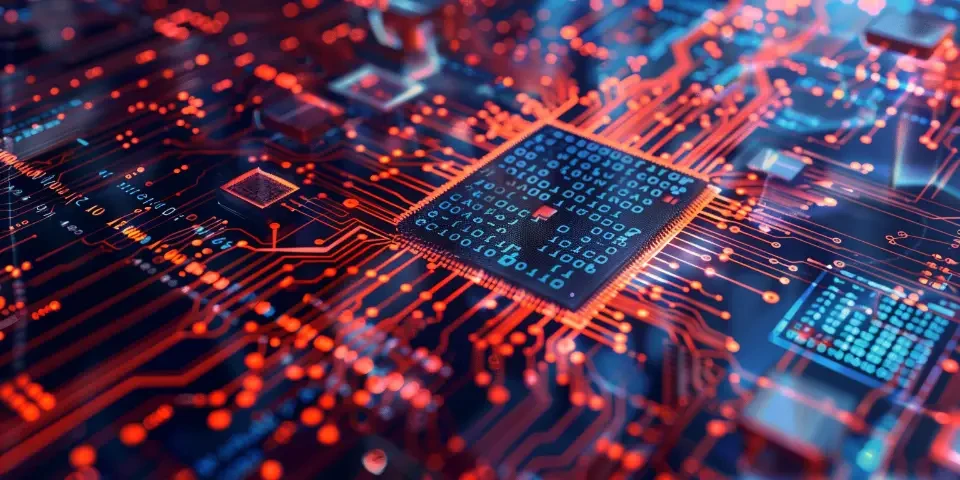Artificial Intelligence (AI) has become an integral part of many industries, and the gaming industry is no exception. With advancements in AI technology, games are becoming more immersive, intelligent, and interactive. AI algorithms and advancements in machine learning are transforming the way games are developed, played, and experienced, promising an exciting future for gamers worldwide. Let's explore how AI is revolutionizing the gaming industry.
1. Intelligent Non-Player Characters (NPCs)
Gone are the days when NPCs in games followed scripted paths and predictable behavior patterns. AI-powered NPCs now exhibit intelligent behavior, learn from player actions, and adapt to changing game environments. These NPCs provide a more realistic and challenging gaming experience, enhancing immersion and engagement.

AI algorithms, such as reinforcement learning, enable NPCs to make intelligent decisions, anticipate player actions, and dynamically adjust their strategies. This creates dynamic and ever-evolving game worlds, making each playthrough unique and exciting.
2. Procedural Content Generation
Procedural Content Generation (PCG) is another area where AI is making significant strides. Instead of relying solely on manual creation, PCG algorithms use AI to automatically generate game content, including maps, quests, characters, and environments.
This eliminates the need for manual content creation, reducing development time and costs while increasing the variety and replayability of games. AI-based PCG algorithms analyze player preferences and behavior, generating content tailored to individual players' tastes and playstyles.
3. Natural Language Processing (NLP)
NLP, a subfield of AI, is enhancing gaming experiences by enabling players to interact with games using natural language commands and conversations. Voice recognition technologies powered by NLP algorithms allow players to control in-game characters, navigate game worlds, and execute actions using voice commands.
This technology not only creates a more immersive gaming experience but also opens the doors for players with disabilities, making games more accessible and inclusive.
4. Adaptive Difficulty
AI algorithms are transforming the way game difficulty is adjusted. Instead of relying on predefined difficulty levels, AI can monitor player performance, adapt the game's challenge level in real-time, and provide a personalized experience. With adaptive difficulty, games can provide an optimal level of challenge, keeping players engaged and motivated.
AI-powered adaptive difficulty systems learn from player behavior, ensuring that games remain challenging but not frustrating for players of all skill levels.
5. Enhanced Realism
AI is revolutionizing the visual aspects of gaming through advancements in graphics rendering algorithms. AI-powered upscaling techniques enhance the resolution and graphical fidelity of games, providing more immersive and realistic visuals.
Additionally, AI algorithms can simulate realistic physics, lighting, and animations, further enhancing realism in gaming experiences. This not only creates visually stunning games but also improves gameplay mechanics.
6. AI-Based Game Testing
Traditionally, game testing involves extensive manual testing, which can be time-consuming and prone to human errors. AI-powered game testing tools automate the testing process, reducing testing time, and increasing efficiency.
These tools use AI algorithms to identify bugs, glitches, and performance issues, ensuring the quality and stability of games before release. AI-based game testers can simulate thousands of possible scenarios and provide valuable insights into gameplay balance and optimization.
7. Personalized Game Recommendations
AI algorithms analyze player preferences, behavior, and playing patterns to provide personalized game recommendations. By leveraging machine learning techniques, gaming platforms can suggest games tailored to individual players, enhancing the discovery process and improving user engagement.
These personalized recommendations go beyond typical genre-based suggestions, considering factors such as gameplay mechanics, difficulty, and player preferences.
8. AI-Powered Chatbots and Virtual Assistants
AI-powered chatbots and virtual assistants are transforming the way players interact with games and gaming platforms. These conversational AI agents can provide in-game assistance, answer player queries, and offer guidance on game mechanics and strategies.
Chatbots equipped with natural language processing capabilities can simulate human-like conversations, making gaming experiences more interactive and engaging. They can also assist with matchmaking, team coordination, and provide real-time information during gameplay.
Frequently Asked Questions:
1. Can AI replace human players in multiplayer games?
No, AI cannot fully replicate the creativity, adaptability, and social interactions that human players bring to multiplayer games. However, AI-powered bots can provide challenging opponents or fill in player slots to maintain balanced gameplay.
2. How does AI impact game development costs?
While AI implementation may require additional resources initially, it can reduce costs in the long run. AI-powered tools streamline development processes, automate testing, and generate content, ultimately reducing the time and effort required for game creation.
3. Will AI take away jobs from game developers?
AI will not replace game developers but will augment their capabilities. AI tools and algorithms can assist developers in various tasks, such as content generation, testing, and analytics, freeing up their time to focus on more innovative and creative aspects of game development.
References:
1. Silver, D., et al. (2016). Mastering the game of Go with deep neural networks and tree search. Nature, 529(7587), 484-489.
2. Summerville, A., et al. (2018). Procedural content generation via machine learning (PCGML). IEEE Transactions on Games, 10(3), 257-270.
3. Hsu, S., et al. (2017). Unsupervised learning of visual representations by solving jigsaw puzzles. In European Conference on Computer Vision (pp. 69-84). Springer, Cham.
Welcome to Wemate AI! Our platform brings AI companionship to life, offering customized interactions and creative roleplay scenarios that reflect your personality. Explore the countless possibilities of connection—join us at Wemate AI!






